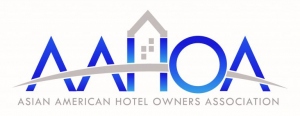Impact of COVID-19 on property tax assessment appeals and valuations discussed.
 The Hotel Owners Academy of the Asian American Hotel Owners Association (AAHOA) invited David Wolfe, Skoloff & Wolfe, P.C. co-managing partner, to share his insights regarding the impact of the pandemic in depressing hotel valuations, as well as strategies for preparing for property tax relief. Mr. Wolfe was joined by Jonathan Falik, the CEO of JF Capital Advisors, a company that specializes in the hospitality industry and provides clients and partners with a broad range of strategic and capital market solutions.
The Hotel Owners Academy of the Asian American Hotel Owners Association (AAHOA) invited David Wolfe, Skoloff & Wolfe, P.C. co-managing partner, to share his insights regarding the impact of the pandemic in depressing hotel valuations, as well as strategies for preparing for property tax relief. Mr. Wolfe was joined by Jonathan Falik, the CEO of JF Capital Advisors, a company that specializes in the hospitality industry and provides clients and partners with a broad range of strategic and capital market solutions.
The COVID-19 pandemic has touched virtually every corner of our personal and professional lives, as well as commercial interests. For hotel owners, steep downturns in business and leisure travel due to stay-at-home orders and other restrictions have combined to hit the hotel industry especially hard. The webinar title, “Understanding the Intricacies of Hotel Valuation,” led viewers through a wide-ranging discussion covering the complexities of hotel valuations for property tax purposes, the fundamentals of hotel property tax appeals, the different approaches to hotel valuations in that context, and Covid-19 specific valuation issues related to hotels.
Property Tax: Hotel Owners’ Largest Expense
Mr. Wolfe expressed the severity of the situation many hotel owners are facing not only in terms of optimizing income and net operating income, but also in saving their properties, which is why a record number of hotel property tax appeals are projected in 2021.
“Property taxes are the hotel owner’s largest expense, so it makes sense to try and lower assessments. However, hotel appeals are particularly complex. Having counsel that specializes in these matters to represent you is critical to achieving a positive outcome,” Mr. Wolfe said.
For example, hotel owners and the professionals they hire to litigate on their behalf need to know which approach to valuation for property tax matters their particular jurisdiction(s) follows: cost approach, sales comparison approach, or income approach – any one of which can be determinative in how a hotel’s assessment is arrived at. Furthermore, filing rules are strictly enforced, which is why having counsel that is experienced in these matters and familiar with taxing jurisdictions is imperative.
“None of this matters if a hotel owner misses the filing deadline,” Mr. Wolfe stressed. “Filing deadlines vary wildly throughout the country and they are strictly enforced so that failure to file on time will result in missing out an entire year’s worth of appeals.”
Broadening the conversation to look at what hotel owners can expect when it comes to matching pre-Covid revenue levels in the coming years, Mr. Falik cited the consensus of multiple industry analysts who project certain segments of the industry to achieve par sooner than others. “The general school of thought is that limited service hotels and drive-to destination hotels will come back quicker, but city center hotels that rely on group and transient corporate travelers will come back last, as will big box group hotels.” It’s expected that the new administration’s policies that are more labor friendly and committed to an increase in the minimum wage will also weigh on revenue.
Skoloff & Wolfe, P.C. – Litigating Hotel Property Tax Appeals Nationwide
Skoloff & Wolfe, P.C. has helped hotel owners, operators and developers successfully contest assessments in jurisdictions around the country. Ownership relies on our expansive understanding of the applicable valuation methodologies to deliver positive results on behalf of our clients. Results may vary depending on your particular facts and legal circumstances. If your hotel is struggling in the COVID-19 era, before you approach a property tax appeal make sure you contact Skoloff & Wolfe, P.C. and speak to an experienced property tax attorney. We can help you prepare and litigate a successful appeal. Call today (973) 992-0900.